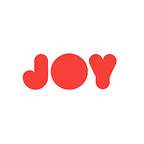Family of the week with Josh
My wife Mandy and I live in Broken Arrow, Oklahoma with our three kids, ages 12, 9 and 5. Our youngest is autistic, but also has many other health challenges and special needs including global developmental delay, epilepsy and dysphagia. Both his autism and his other special needs make it very difficult for our littlest to transition between activities throughout the day. We have to warn him in advance, set a timer so that he knows a transition is coming, find a couple dozen toys for him to bring along, bribe him with his favorite TV show upon our return — anything to help him prepare for and accept the change, or we risk a complete meltdown.
In our house, the aim is to stick to routines as much as possible in order to minimize surprises for him, but as any experienced parent can attest to, that’s not always realistic. Once our two older kids’ school and extra-curricular activities, our youngest’s school and therapies throughout the week, and the regular daily activities are added up, there are a ton of opportunities for him to become overwhelmed by an unexpected transition and shut down.
The positives far outweigh the struggles though. Our family has adjusted to life with our special little guy, and my older kids are far more aware of (and far more caring about) the side of special needs individuals that most miss: just how special they are to others. Precious to us are the moments of calm — the time between the transitions when we can enjoy our kiddos without needing to anticipate the next potential trigger. Special too are the moments when we get to stand back and watch our kids interact with each other; the times we get to see just how close they are to their baby brother, and how much they love him.
We backed the Octopus watch as a transition tool for our youngest, and as a way to provide him with a level of independence he hasn’t ever had.
We backed the Octopus watch as a transition tool for our youngest, and as a way to provide him with a level of independence he hasn’t ever had. With the ability to create a schedule that automatically notifies our youngest of upcoming activities and transitions, we can help him learn to self-correct; to prepare himself for the changes. This is invaluable. Not only will it help him cope with individual changes throughout the day, it will also make a seemingly hectic, chaotic schedule feel much more routine, which is very calming to many who struggle with autism.
As to the independence, any special needs parent understands just how important it is to find ways for our special ones to feel in control — we are always more involved (and in control) of their lives, so any measure of independence they can have is doubly important. The Octopus watch is better-positioned than any other tool I’ve seen to help kids achieve more independence, while still letting parents retain control over their schedule.
The choice to use icons for the interface is inspired — our youngest is nowhere near being able to read or tell time yet, but he should have little trouble learning what the pictures mean. In addition to using icons for school, teeth-brushing, bedtime, etc we also plan to use this to finally get our little guy potty-trained (so please include a potty icon) and for letting him know about upcoming occupational, speech, feeding and physical therapies. The ability to create custom icons would also be a welcome addition — it’s hard to anticipate every situation.
Thank you for developing such a well-considered, innovative tool for kids — we can’t wait to see it succeed like we know it will!
